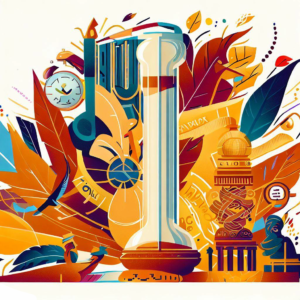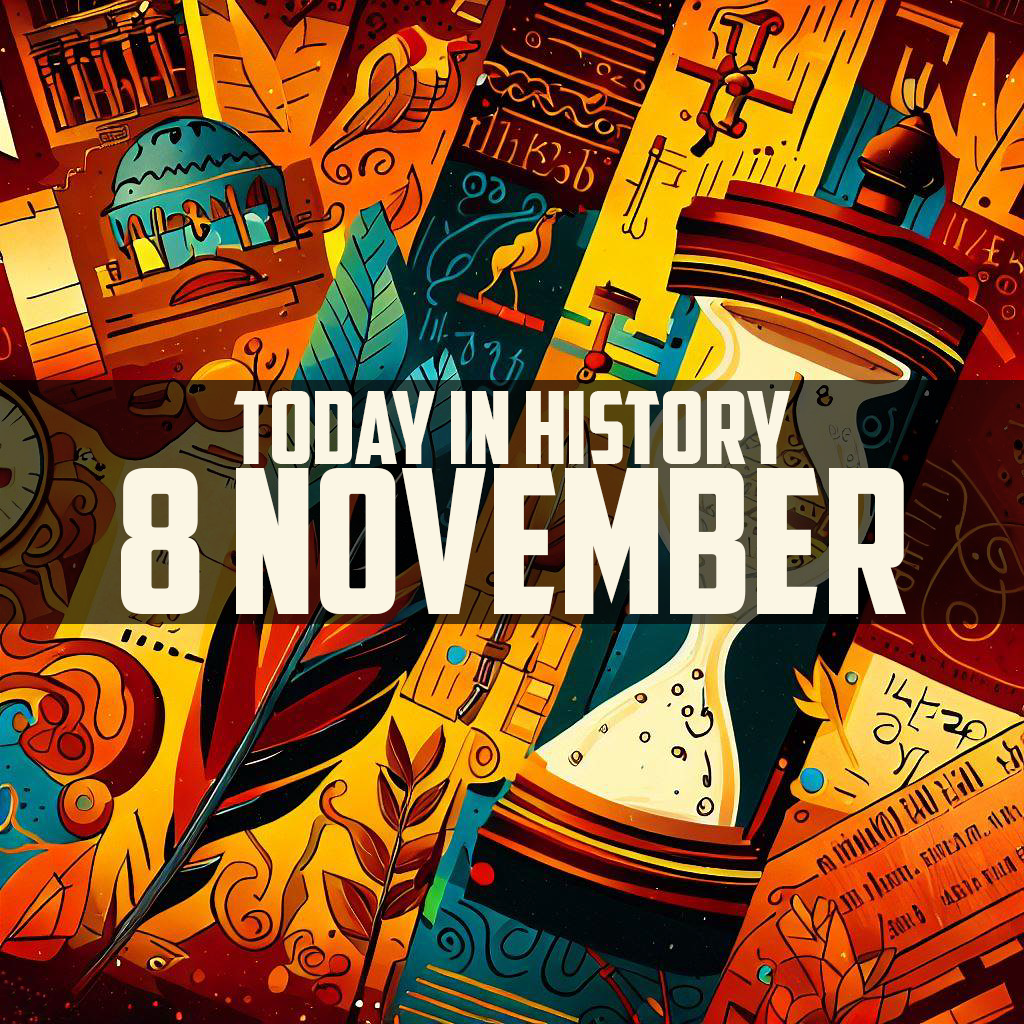November 8th has been historically significant for a myriad of reasons, spanning various continents, cultures, and centuries. This date has witnessed pivotal moments, ranging from political transitions and military decisions to advancements in science and culture. Let’s delve into some of the most notable events that have taken place on this day.
Today in History: 8 November

1. 392 AD: Theodosius Declared Christianity the State Religion of Rome
In 392 AD, Theodosius I, the last emperor to rule both the eastern and western halves of the Roman Empire, declared Nicene Christianity the official state religion. This monumental decree not only recognized Christianity but also effectively marginalized other religious practices, setting the stage for the Christian dominance of the Western world for centuries to come.
2. 1519: Cortés Enters Tenochtitlán
Spanish conquistador Hernán Cortés and his troops entered Tenochtitlán, the capital of the Aztec Empire. This marked a significant step in Spain’s eventual conquest of present-day Mexico. The Aztec ruler, Moctezuma II, initially welcomed Cortés, but tensions soon escalated, culminating in the fall of the Aztec empire in 1521.
3. 1889: Montana is Admitted as the 41st U.S. State
The “Treasure State,” known for its significant mineral resources, became the 41st state to join the Union. Montana, with its rich history of Native American tribes, fur trading, and gold rushes, added a vast expanse of natural beauty and resources to the United States.
4. 1895: Wilhelm Conrad Röntgen Discovers X-Rays
While working in his laboratory in Würzburg, Germany, physicist Wilhelm Conrad Röntgen noticed a fluorescent glow of crystals near a cathode-ray tube. He named the rays causing these fluorescence X-rays because of their unknown nature. This discovery revolutionized the fields of medicine and science, leading to Röntgen being awarded the first Nobel Prize in Physics in 1901.
5. 1923: Beer Hall Putsch Begins
Adolf Hitler and the Nazi Party attempted to overthrow the Weimar government in Germany. The failed coup took place in Munich and was a significant event in the rise of Nazi power. Though unsuccessful, the putsch provided Hitler with a platform to promote his political ideologies and ultimately helped propel him to national prominence.
6. 1939: Life Magazine Begins Publishing as a Weekly
Life magazine, known for its photojournalism and in-depth features, began its run as a weekly publication. Over the years, the magazine would capture countless iconic moments in history, culture, and the lives of everyday Americans.
7. 1960: John F. Kennedy Elected 35th President of the United States
In a closely contested race against Richard Nixon, John F. Kennedy was elected the youngest president (at the time) and the first Roman Catholic president in U.S. history. His presidency, though cut short by assassination in 1963, would be remembered for events such as the Cuban Missile Crisis, the foundation of the Peace Corps, and his vision of a “New Frontier.”
8. 1965: The British Indian Ocean Territory is Created
Comprising a group of islands in the Indian Ocean, the British Indian Ocean Territory was established. The most well-known island in this territory is Diego Garcia, which has since been a strategically important military base for the U.S. and U.K.
9. 1973: The Right Ear of John Paul Getty III is Delivered to a Newspaper
In a harrowing event, the kidnapped grandson of billionaire J. Paul Getty had his right ear cut off and mailed to a newspaper by his captors to force a ransom. The ransom was eventually paid, and John Paul Getty III was released, though he faced numerous challenges in the subsequent years.
10. 2002: The United Nations Passes Resolution 1441
This resolution offered Iraq a final opportunity to comply with disarmament obligations. The aftermath, marked by claims of Weapons of Mass Destruction (WMDs) and tensions between Iraq and major world powers, played a significant role in the events leading up to the Iraq War in 2003.
11. Notable Births
Several influential figures were born on this day. Among them are:
- Margaret Atwood (1939) – The acclaimed Canadian author known for novels such as “The Handmaid’s Tale.”
- Kazuo Ishiguro (1954) – The British novelist, famous for “Never Let Me Go” and “The Remains of the Day,” who was awarded the Nobel Prize in Literature in 2017.
- Bram Stoker (1847) – The Irish author best known for his Gothic horror novel “Dracula.”
12. Notable Deaths
Key figures in history who died on this day include:
- Wendell Willkie (1944) – The American lawyer and corporate executive who ran against Franklin D. Roosevelt in the 1940 Presidential elections.
- Doc Holliday (1887) – The American gambler, gunfighter, and dentist, remembered for his role in the Gunfight at the O.K. Corral.

In conclusion, November 8th is a date marked by significant events that have influenced politics, science, culture, and more. The aforementioned events, among countless others, show the breadth and depth of history that can unfold in just one day. As we reflect on these moments, we’re reminded of the ever-evolving narrative of humanity and the individual events that shape our collective past, present, and future.
